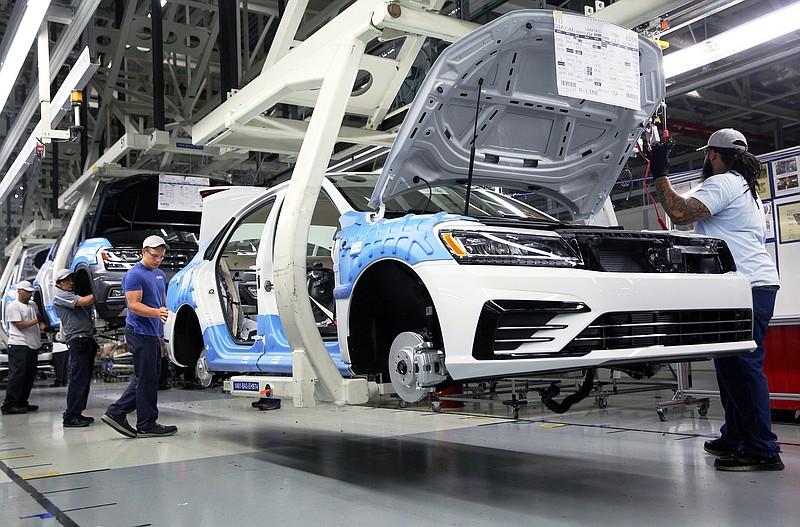A Volkswagen of America spokesman says a ruling by a trade panel against a battery supplier for electric vehicles to be built in Chattanooga won't impact a planned 2022 production launch.
Company spokesman Mike Tolbert said the company is continuing to analyze the ruling from the U.S. International Trade Commission (ITC) and its impact on the automaker.
But Tolbert said the decision does not change Volkswagen's commitment to produce an electric SUV in Chattanooga next year.
On Wednesday, the ITC ruled for South Korean electric vehicle battery maker LG Chem against rival SK Innovation (SKI).
LG Chem, along with its LG Energy Solution entity, claimed that SKI attempted to destroy a wide range of evidence indicating that it stole confidential battery-making trade secrets.
In April 2019, LG Chem and its U.S.-based manufacturing unit filed the complaint with the federal panel accusing its South Korean rival of trade secret theft by hiring dozens of engineers, manufacturing, and critical business services staff.
"SKI's total disregard of our warnings and intellectual property rights gave us no choice but to file this case and we are grateful to the International Trade Commission for protecting our innovations and significant economic investments in the United States," said Jong Hyun Kim, CEO of LG Energy Solution, in a statement. "As a global leader and technology innovator, we will further strengthen the protection of intellectual property rights going forward."
The ITC said it would permit SKI to import components for domestic production of lithium-ion batteries, battery cells, battery modules, and battery packs for Volkswagen's electric vehicles for two years. The panel said it would allow SKI to do the same for Ford Motor Co's EV F-150 program for four years to permit the automakers to transition to new domestic suppliers.
The ruling reportedly starts a 60-day review period for the Biden administration, and SKI can appeal the decision in U.S. federal court.
SKI said it will immediately enter into discussions with its customers, VW and Ford.
"We have serious concerns about the commercial and operational implications of this decision for the future of our EV-battery facility in Commerce, Georgia," the company said.
SKI broke ground in 2019 in Northeast Georgia on a $1.67 billion EV battery manufacturing facility that would create 2,000 jobs. In 2020, the company said it planned to plow another $940 million into the site.
The factory is one of the biggest economic development projects in Georgia history. To win the project, Georgia provided $300 million in grants, property and other assistance to SK Innovation. State officials have warned that Georgia could lose thousands of jobs and billions of dollars in investments if the plant is forced to close.
Georgia could claw back some of the financial incentives it provided to SK, if the promised jobs are not created, according to Pat Wilson, commissioner of the Georgia Department of Economic Development.
"We remain committed to SK and interested in the impact of the project on the state," Wilson said in an emailed statement to the Atlanta Journal-Constitution.
Last year, Volkswagen weighed into the dispute, saying that SKI ought to be allowed to make EV batteries at facilities under construction in Georgia slated to supply VW's Chattanooga factory.
The German automaker said then that permitting SKI to supply batteries to the company would prevent Volkswagen from suffering "a catastrophic supply disruption" resulting in delayed introduction of the company's EVs in the U.S.
Volkswagen Chattanooga is constructing an $800 million expansion where a new electric SUV is to be assembled in 2022, with plans to hire about 1,000 more workers.
Contact Mike Pare at mpare@timesfreepress.com. Follow him on Twitter @MikePareTFP.
